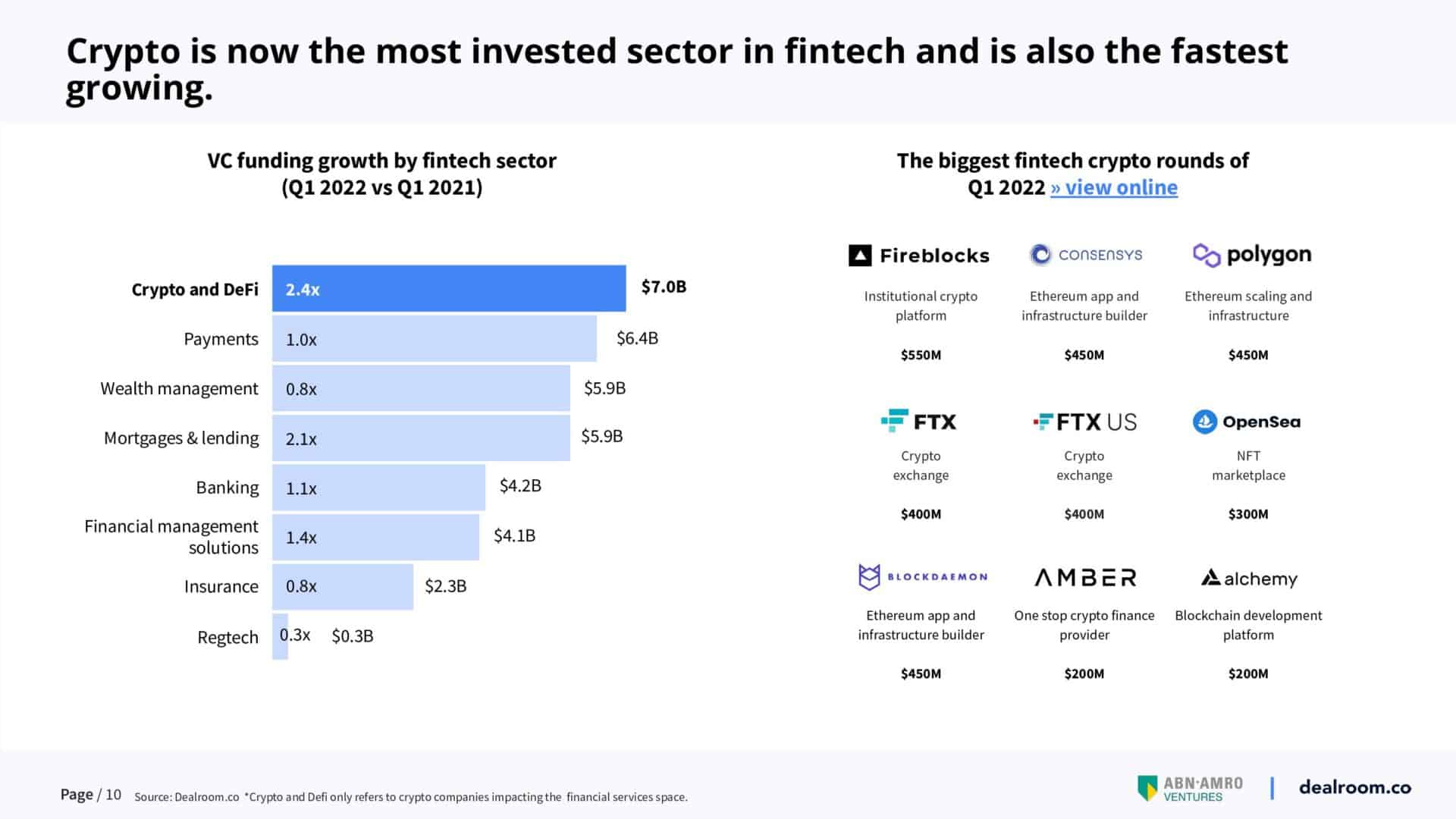In the face of a recession, many financial institutions have been worried about rising interest rates, lack of consumer spending, and growth impairment. But the one area that has been the most unstable amid this economic uncertainty also happens to be seeing the most investment dollars when it comes to contributions in the fintech space. Crypto investment and defi funding is growing faster than any other segment, raising around $7 billion in Q1 of 2022.

With this type of growth, traditional financial institutions had set their sights on trying to get their piece of the crypto pie. As of May 2022, Blockdata reported 61 of the leading 100 banks had invested in the cryptocurrency space at least one time, up 10% from August 2021. Since then, the market has changed exponentially; token values have remained in flux after an industry crash and multiple top companies have toppled down, making the market more volatile than ever. And as FTX’s implosion continues to unfold and ultimately reshape the cryptocurrency industry as we know it, it’s hard not to wonder where that will leave major investors in the space.
So, who are the top financial institutions making crypto investments? And what does that mean for the finance market as a whole as the crypto landscape is currently in the middle of a long, cold winter?
Who’s Investing and Where?
To start, let’s take a look at where these investments are coming from. According to Blockdata, the largest investors in the space are Morgan Stanley ($1.1B in 2 rounds), Goldman Sachs ($698M in 5 rounds), BNY Mellon ($690M in 3 rounds), Commonwealth Bank of Australia ($421M in 4 rounds), and Citigroup ($215M in 6 rounds).
Millions of dollars in contributions are going toward custody solutions and tech providers; the market cap of crypto exploded in November of last year, causing a higher demand in digital assets held by custody providers. There has also been significant investment in blockchain technologies, which support the cryptocurrency ecosystem. Figment, Talos, and Blockdaemon received the most funding in this space from companies like Citi Ventures, BNY Melon, and Morgan Stanley. Additionally, banks are contributing to crypto data providers like Coin Metrics and Amberdata to help them evaluate and understand potential opportunities in the ever-changing market.
Funding and Litigation
So why does this funding matter? While many financial institutions like Bank of America have been waiting in the wings for a stronger regulatory environment to precede their contributions, other firms are gambling on crypto adoption. With this much investment in such a volatile space, it is only a matter of time before big banks begin to get caught up in the mix of the current market’s crypto fallout. And according to our analysis, many of them already have been. J.P. Morgan Chase Bank has been involved in 14 crypto-related suits, TD Ameritrade has been in 13, Wells Fargo in 10, Charles Schwab in 10, Citigroup in eight, and HSBC holdings in five. Further, TD Bank, Deutsche, Credit Suisse, Morgan Stanley, BNY Mellon, HSBC, and Goldman Sachs have all been involved in at least three suits related to crypto—meaning that almost all of the top financial institutions investing in the space have been involved in litigation.
Additionally, we are likely just seeing the tip of the iceberg regarding regulatory actions with FINRA reportedly now targeting brokerage firms for not properly communicating the risks associated with crypto investments.
We have already seen how stable coin crashes complicated the operations of a variety of fintech institutions, and now with FTX’s collapse, it is hard to say who will be left destroyed in its wake. If your company needs help preparing for or responding to these challenges, reach out to WIT for the best experts to advise you on your strategy. Our expert teams can address what we expect to be the key areas of litigation in emerging financial technologies, digital assets, and cryptocurrencies and exchanges.




